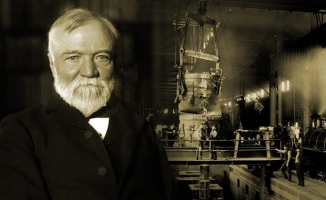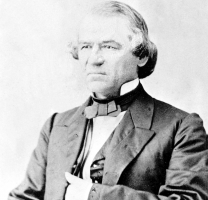Top 8 Interesting Facts about Andrew Jackson
Andrew Jackson or Old Hickory was the first US president to come from the area west of the Appalachians and the first to be elected by a direct appeal to the ... read more...mass of voters. Let's check out the most interesting facts about Andrew Jackson.
-
On March 15, 1767, Andrew Jackson was born close to Lancaster, South Carolina. Two years prior, his parents Andrew and Elizabeth, as well as his two older brothers Hugh and Robert, left Ireland.
Shortly before he was born, Jackson's father, for whom he was named, passed away. Jackson grew up with a big extended family who were also Scots-Irish immigrant farmers at the Waxhaws settlement on the North Carolina and South Carolina border, where he was raised by his widowed mother. With his tendency for tricks, swearing, and fighting, young Jackson rapidly destroyed his mother's dreams of him becoming a Presbyterian minister.
Due to a lack of information regarding his mother's actions immediately after her husband's death, Jackson's precise birthplace is unknown. The border between North and South Carolina had not been formally surveyed since the region was so remote. Andrew Jackson claimed in a letter he had written in 1824 that he had been born in Lancaster County, South Carolina, on his uncle James Crawford's estate. Jackson might have asserted his South Carolinian citizenship because he opposed the state's plans to annul the Tariff of 1824, which was being considered by South Carolina. He might have been born at the residence of a different uncle in North Carolina, according to second-hand information from the mid-1850s.
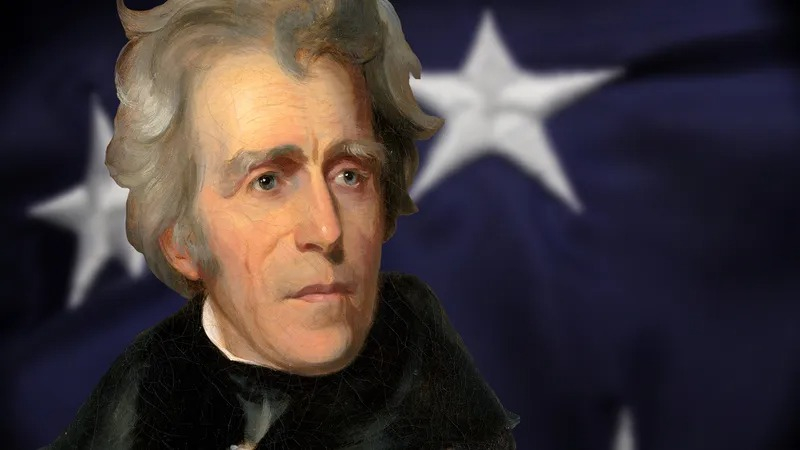
Photo: Britannica Source: Biography -
The ferocious Andrew Jackson had a tendency for pulling out his weapons in response to insults against his honor. According to historians, "Old Hickory" might have engaged in 5 to 100 duelings - one of the interesting facts about Andrew Jackson. When Charles Dickinson referred to Andrew Jackson in a local newspaper as "a worthless scoundrel, a paltroon, and a coward" in 1806, the future president challenged Dickinson to a duel.
Dickinson shot at the signal, striking Jackson in the chest. Jackson's heart was just hit by the bullet by less than an inch. Despite being wounded seriously, Jackson stood his ground, raised his pistol, and fired a shot that killed his enemy. Jackson would live the rest of his life carrying the bullet in his chest and another from a subsequent duel. It's also one of the most interesting facts about Andrew Jackson.
Jackson and Tennessee's governor, John Sevier, engaged in a duel in 1802, which resulted in a stalemate involving their seconds. Thomas Hart Benton, who fought alongside Jackson and twice engaged in legal combat with Charles Lucas, was another frequent dueler. In their second duel in 1817, Benton killed Lucas. Benton worked as Andrew Jackson's right-hand man in Congress while serving as a senator.
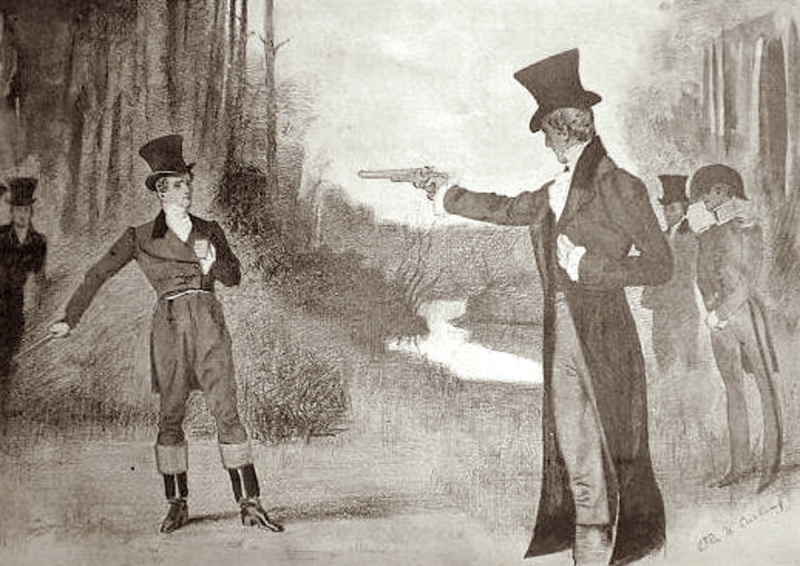
Photo: Owlcation Source: American Heroes Channel -
When Andrew Jackson won the presidency in 1828, he received close to 56% of the popular vote; when he was elected again four years later, he came very nearly matching that percentage. When "Old Hickory" ran for president for the first time in 1824, he likewise received the most popular votes, though not a majority.
The 1824 election was turned over to the House of Representatives because no candidate received a majority of the electoral votes. In what Jackson's supporters claimed was a "corrupt bargain," the Speaker of the House Henry Clay, who was named secretary of state by Adams, helped Adams elect John Quincy Adams. Jackson consistently argued for the removal of the Electoral College in his yearly messages to Congress.
In all but two states by 1828, electors for the presidency were chosen by the people, and public opinion was more significant than ever. Jackson's allies started pro-Jackson publications and contributed to the dissemination of news and election materials. Rallies, parades, and other public events were planned by both sides to support their respective candidates. After a campaign in which personalities and slander played a larger role than in any previous U.S. presidential election, Andrew Jackson defeated Adams by an electoral vote of 178 to 83.
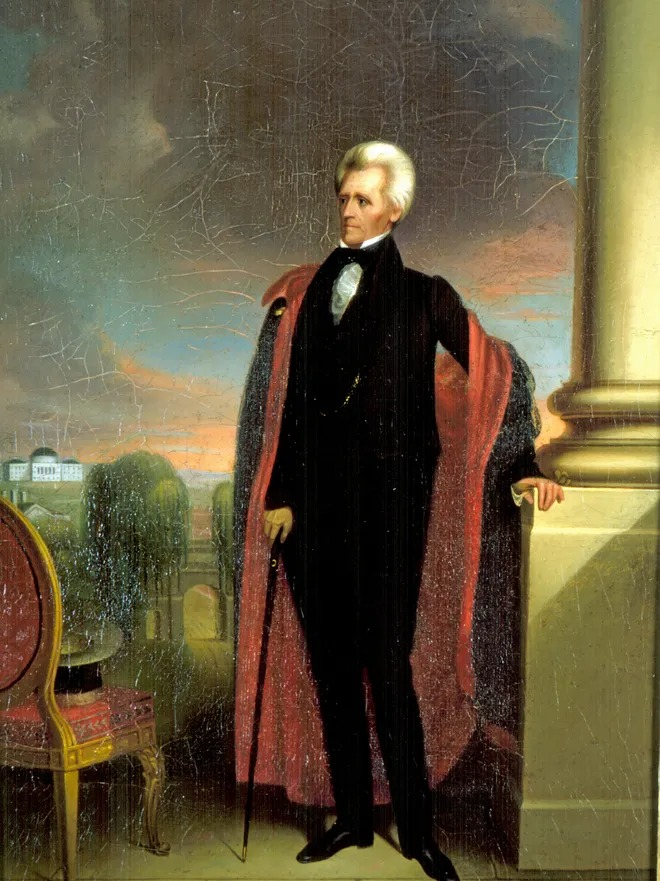
Photo: Tennessean 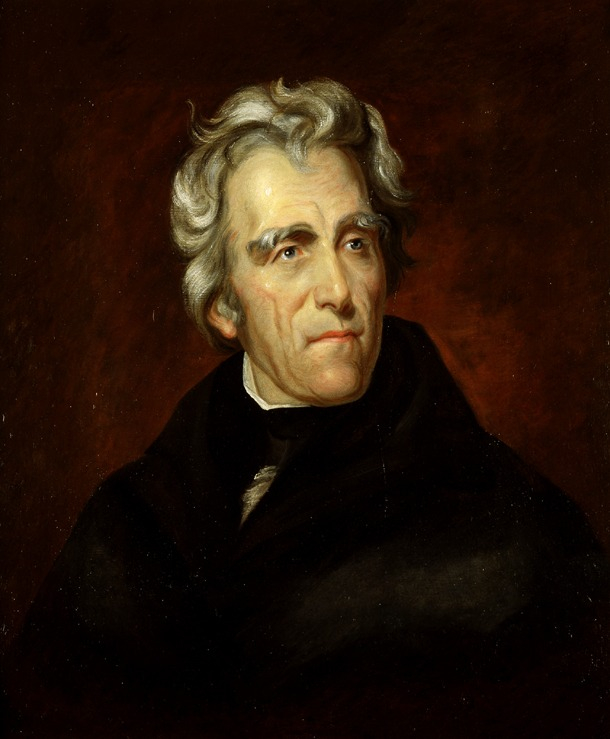
Photo: Senate -
The first assassination attempt on an American president occurred on January 30, 1835. Jackson was leaving a congressional funeral conducted in the House chamber of the Capitol building when Richard Lawrence, an unemployed house painter, approached him and fired one shot, but it missed Jackson.
Andrew Jackson, 67, confronted Lawrence and struck him multiple times with his walking cane out of rage. Lawrence was able to get a second loaded pistol out during the struggle, but when he pulled the trigger, it again shot incorrectly. The president was left unharmed but enraged and, as it turned out, paranoid after Jackson's aides successfully wrestled Lawrence away from him. It was eventually discovered that the likelihood of both guns being accidentally shot during the attempted murder was one in 125,000.
Andrew Jackson believed that Lawrence had been recruited by his Whig Party competitors to assassinate him despite the fact that Lawrence was probably a mentally unstable person with no connections to Jackson's political adversaries. Jackson's Democrats and the Whigs were at odds over his plan to abolish the Bank of the United States at the time. Martin Van Buren, his vice president, was likewise cautious and began to bring two loaded pistols with him when he went to the Senate.
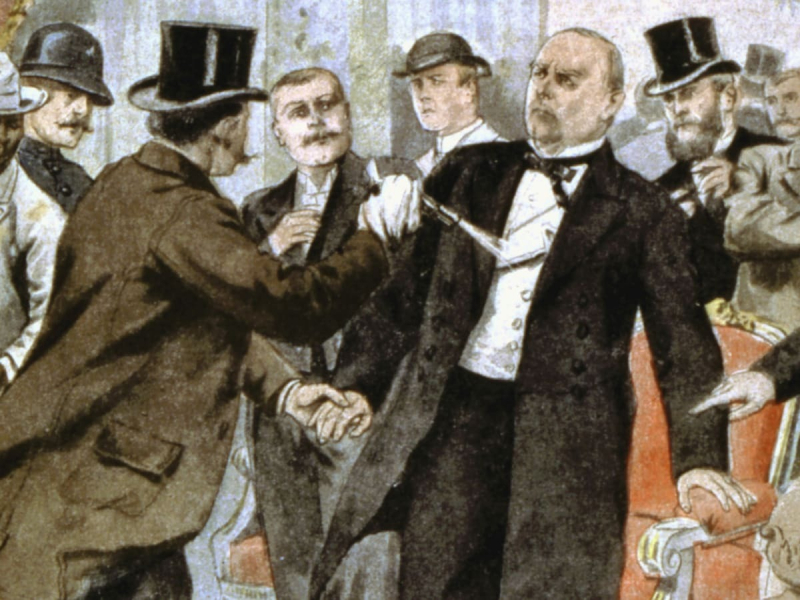
Photo: History Source: History Pod -
In the 1780s, after relocating to Nashville, Tennessee, Andrew Jackson developed feelings for the unhappy married Rachel Donelson Robards. Robards married Jackson after divorcing her spouse and assuming that she legally divorced her first husband. Her first husband, though, had accused her of adultery while the divorce was still pending. Jackson formally wed Robards again in 1794.
However, during the bitter 1828 presidential campaign, Jackson's political rivals propagated rumors about his wife's alleged adultery. They remarried after realizing their mistake, but the damage had already been done. Jackson's moment of victory was quickly eclipsed by personal sadness when, on December 22, 1828, his wife passed away at the Hermitage.
She had shied away from the spotlight because she was retired and religious, and the scandalous attacks had devastated her. On December 22, 1828, she passed away. The loss of her crushed Andrew. Jackson always attributed her passing to his political rivals, despite the fact that her illnesses had started as early as 1825. Andrew Jackson's gravestone bears the following description: "A being so gentle and yet so virtuous, slander might wound, but could not dishonor.” She had expressed her reluctance to accept the position as hostess of the President's House, stating that she would "rather be a doorkeeper in the House of God than live in that palace."
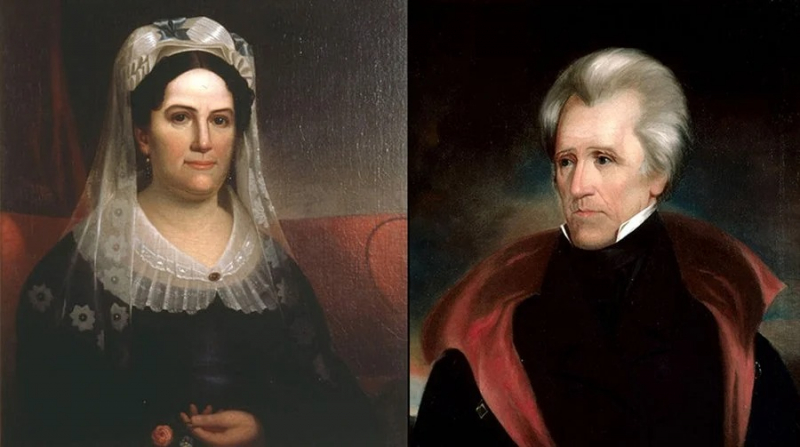
Photo: Smithsonian Magazine Photo: Reading Through History -
The 13-year-old Andrew Jackson enlisted in the Continental Army as a courier during the Revolutionary War. He and his brother Robert were taken prisoner in April 1781. Being the only president who was a former prisoner of war is one of the most interesting facts about Andrew Jackson.
Jackson refused to polish his boots when a British commander asked him to do. The enraged Redcoat pulled out his sword and gashed Jackson's head and left hand, leaving a scar that would never go away. After two weeks of cruel treatment in captivity, the British freed the brothers, but Robert passed away a few days later from a disease he contracted while being held captive.
Andrew Jackson distinguished himself as a national hero during the following conflict with the British—the War of 1812. Because they believed he was as tough as the rough wood of a hickory tree, his troops called him "Old Hickory." Jackson and his troops successfully defended the city of New Orleans in January 1815. Although word of the end of the war had actually spread weeks earlier, neither Jackson nor the British were aware of it. Jackson became a hero as a result of the triumph, which continued to increase national confidence.
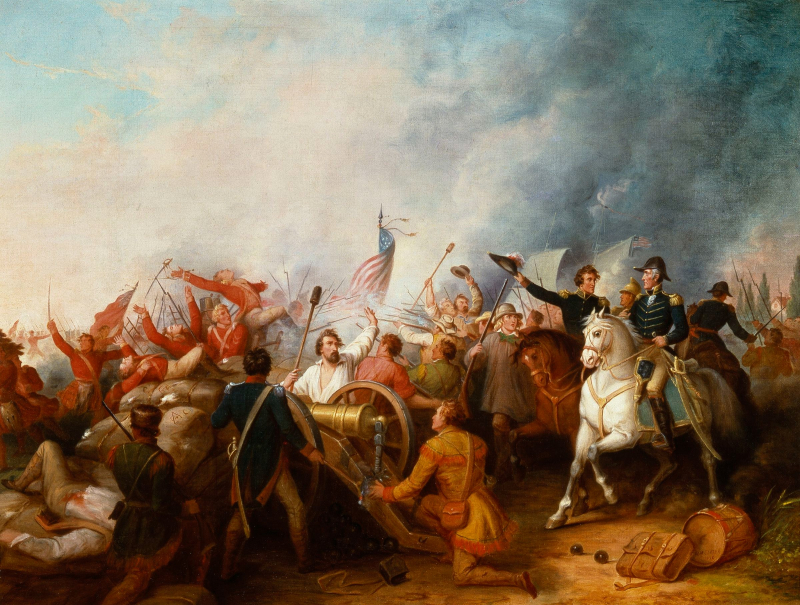
Photo: Wuz Source: Rated Red -
Andrew Jackson not only signed the Indian Removal Act as president and commanded military battles against the Creeks and Seminoles, but he also adopted two Native American infants during the Creek War in 1813 and 1814. Jackson, who was orphaned at the age of 14, returned to Rachel a baby orphan named Theodore who passed away in the early months of 1814, and a young boy named Lyncoya who was discovered on a battlefield in the arms of his deceased mother. The youngster was described by Jackson in a letter to his wife as "a savage that fortune has thrown in my hands."
Lyncoya (1811 to 1828) may have only been supposed to be a friend for Andrew Jr. at first, but Jackson quickly developed feelings for him. Jackson wanted to send Lyncoya to West Point and he received the same education as Andrew Jr. Unfortunately, political factors prevented him from doing that, so he instead studied to become a saddle maker in Nashville. Months before Jackson was elected, in 1828, Lyncoya passed away from tuberculosis.
Besides, Andrew Jackson also adopted Hutchings who was the son of a previous business associate of Jackson and the grandson of Rachel's sister. Before he was five, both of his parents had passed away. Little Hutchings, as his relatives referred to him, thus moved in permanently at The Hermitage in 1817.
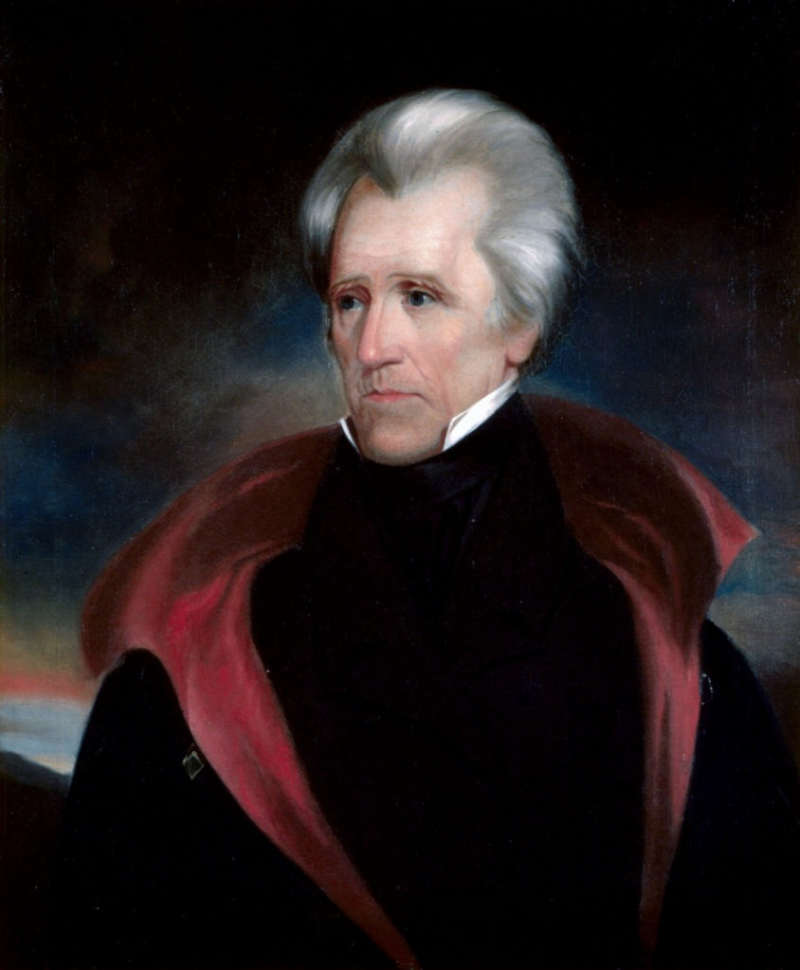
Photo: HistoryNet 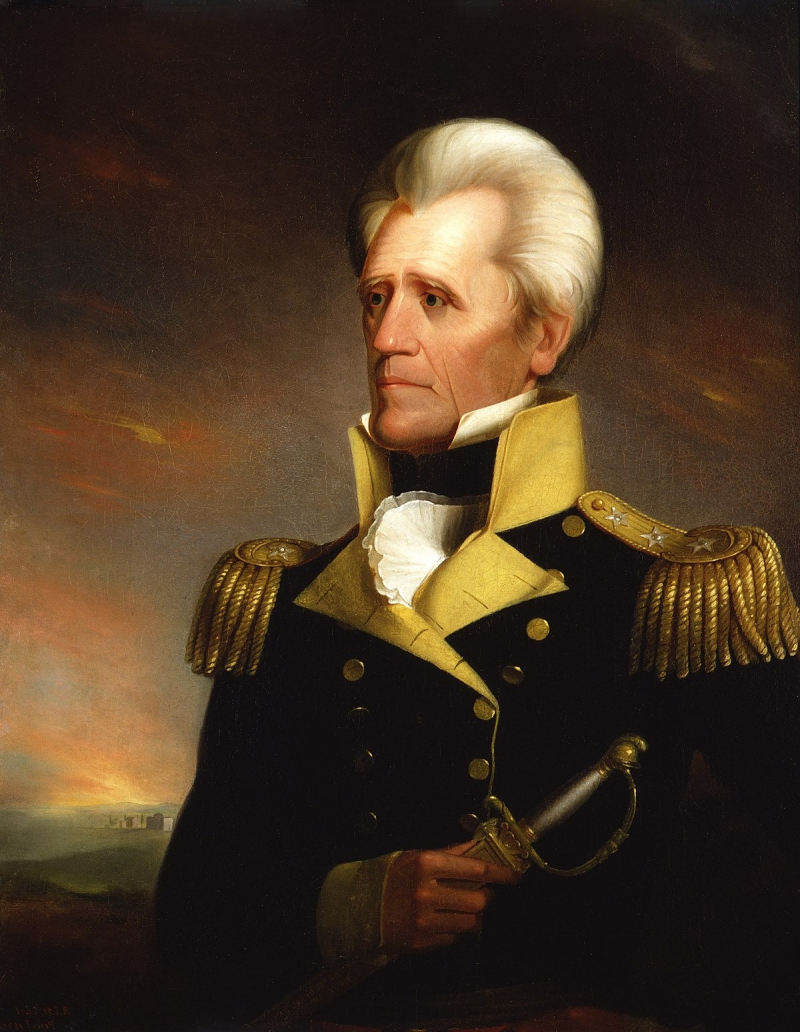
Photo: Wikidata -
Andrew Jackson was against state and national banks issuing paper money because of the financial damage he once suffered from depreciated paper notes. He shut down the Second Bank of the United States in part because of its capacity to manipulate paper money, only using gold and silver as legal tender.
Jackson instructed Secretary of the Treasury Levi Woodbury to issue the Specie Circular on July 11, 1836, in accordance with federal law, which forbade the government from accepting anything other than gold and silver specie for the sale of public lands larger than 320 acres after August 15, 1836. The decree was one of Jackson's final acts as president, therefore the majority of its effects happened under Martin van Buren's administration and were attributed to him. With Jackson's announcement, the value of paper money continued to decline. As a result, inflation and prices increased. The Specie Circular was widely regarded at the time (and by historians thereafter) as the cause of the price increase and the ensuing Panic of 1837.
Ironically, in addition to Andrew Jackson's depiction being on the $20 bill, other prior appearances of his include the $5, $10, $50, and $10,000 bills as well as the Confederate $1,000 bill.
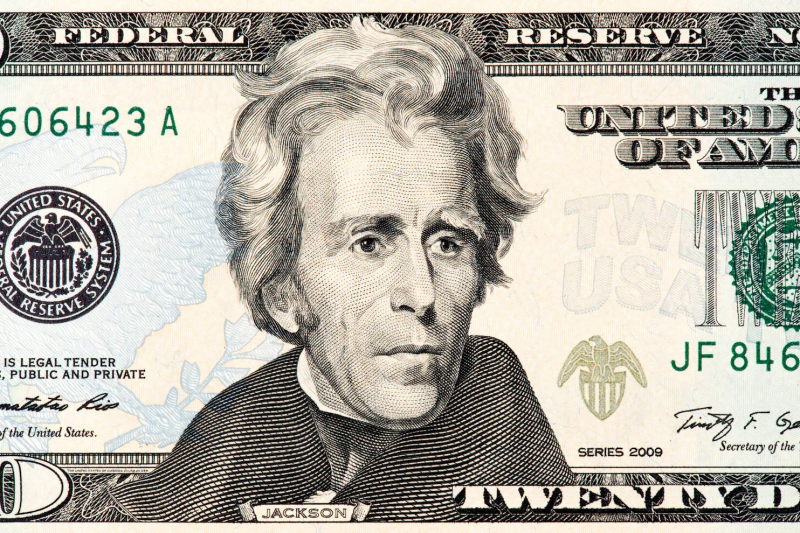
Photo: The Washington Post 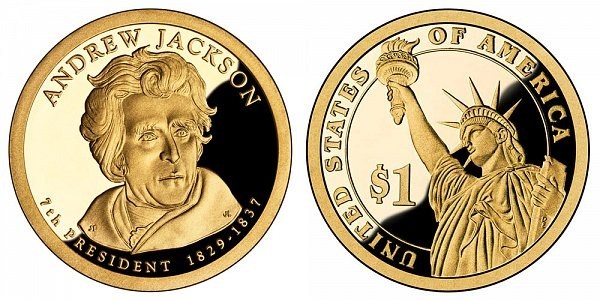
Photo: USA Coin Book










